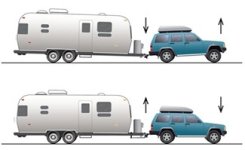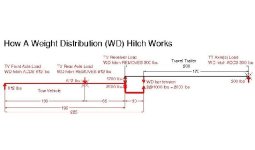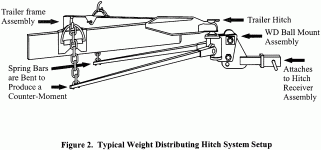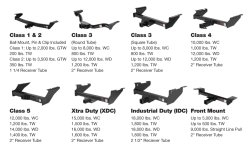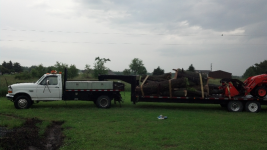joshuabardwell
Elite Member
Based on my towing experience, I have to say that I've never felt like I really need one, even now knowing a little more about them. I suppose I should have one however, and would probably notice a big difference. It's probably one of those things that you never knew you needed until you used it, sort of like a grapple.(just not to THAT extent)
Jejeosborne's point about transferring the weight from the rear bolts only to the other bolts holding the receiver on is key. If you don't fully understand that, stop and think it through until you do (it took me a time or two until it clicked, but maybe you are quicker on the uptake than me). Yes, a WD system makes your truck ride better. Yes, it takes weight off your rear axle and transfers it to the front axle, thereby helping keep your rear axle below its GAWR. Yes, it helps prevent the trailer from diving under braking. All of that is wonderful. But the single most important thing it does is it keeps ALL of your trailer's weight from being borne by just a few bolts. In other words, it keeps your receiver from (maybe) falling off because those bolts have been running at 2x or 4x or more of their rated load for thousands of miles and they finally gave up the ghost. This is key because you won't notice or feel anything wrong until the moment those bolts let go, which leads people to a false sense of security. The truck drives okay, sure it sags a little, but it's fine. And away they go. And some people do it their entire life with no problem, but others, their hitch falls off the back of the truck going down the highway. Whoops.
